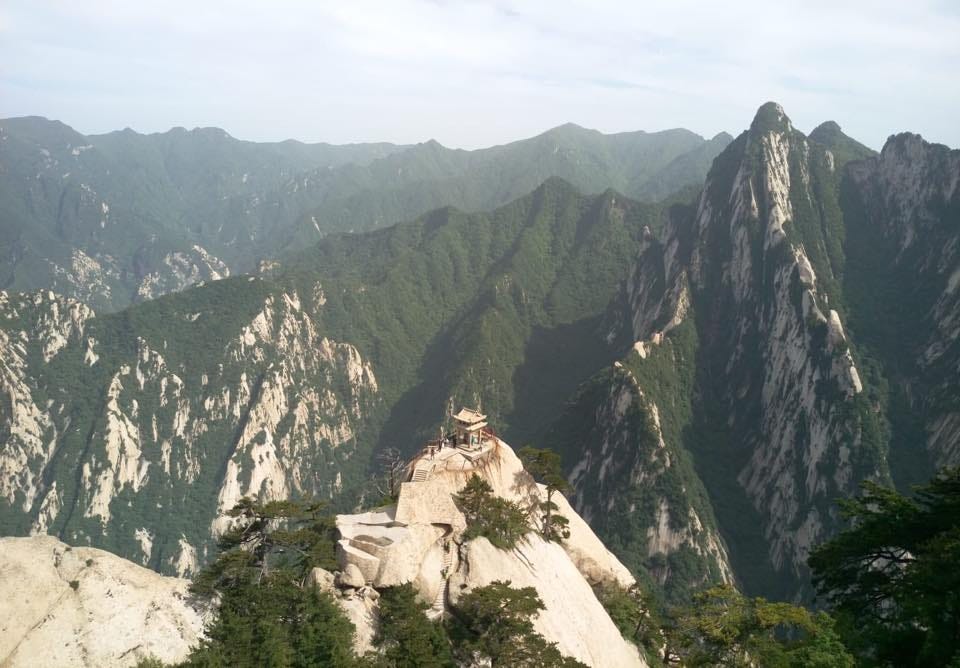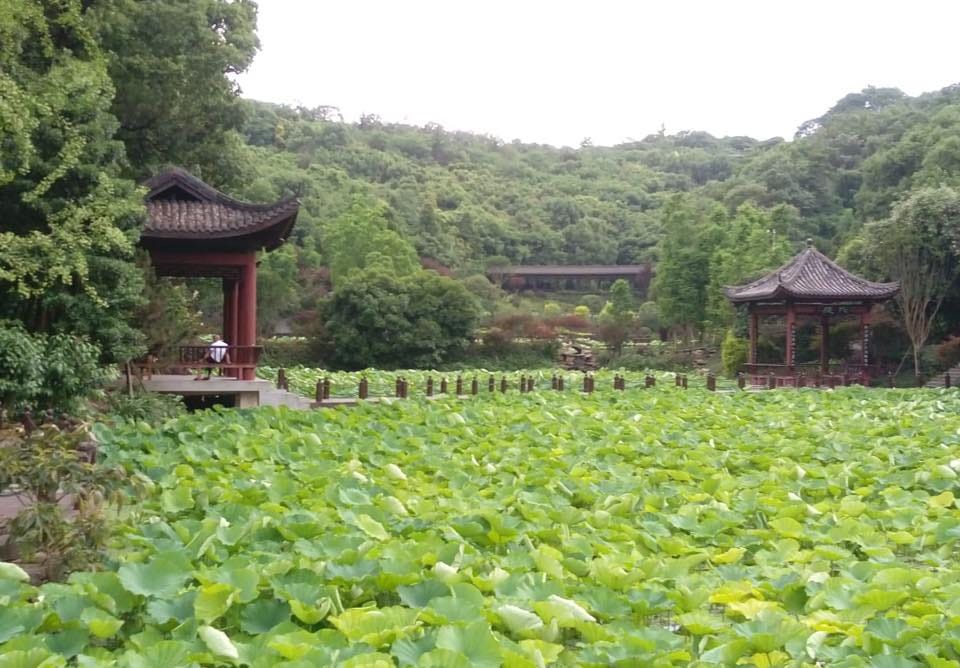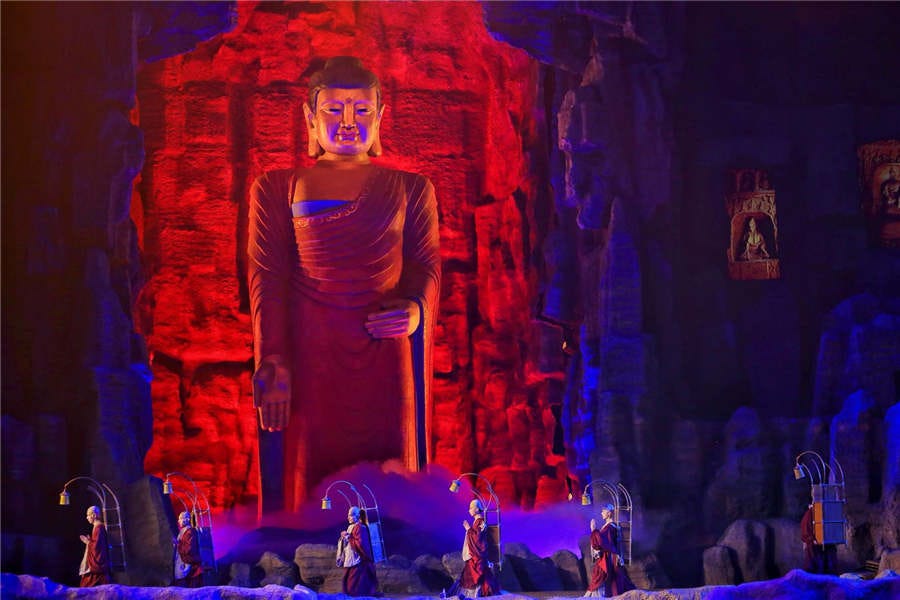According to legend, the young Buddha — at the time still Prince Siddhartha Gautama — ventured outside his palace and saw an old man, then a sick man, then finally a dying man. This prompted him to search for answers: Why is it that all men must grow old, fall sick, and die? Why is there suffering in the world, and what can be done about it?
He could have just returned to his palace and gone on with his life. After all, old age, sickness, and death were still far on the horizon. But as a philosopher, the Buddha wanted — no, needed — answers.
The seeker of truth cannot turn a blind eye to the fundamental problems of life. Everywhere he looks, even the most trifling of observations scream out at him, desperate to be heard, and he feels the irresistible urge to investigate them for the profound meaning they might contain.
This relentless search for meaning is the spirit of philosophy. Chinese intellectual Hu Shih remarks:
“It’s just a matter of finding meaning in your day-to-day experiences. The philosopher is nothing special — just a person who has managed to get a little more meaning out of life than most.”
In this sense, our journey was at its core a philosophical endeavor — a quest to find meaning in the myriad novel experiences, great and small, that engaged, inspired, and confronted us in an unfamiliar environment.
The fruits of this quest?
Three experiences: A mountain, a person, and a show…and then, a rambling attempt to connect the dots.
Huashan, Day 8.

In the mundane world with its tedious tasks and responsibilities, so rife with cynicism and profanity, the human being yearns for something greater. We seek fulfillment in art, music, literature, science, religion, and philosophy — sacred pursuits by which we transcend our embedded existence in the Cave to gaze upon eternal ideals like beauty, truth, and nobility. Yet in aiming for these unattainable ideals, we find ourselves faced with the ugliness of reality.
At Huashan, a sacred Daoist mountain steeped in myth and legend (and the storied milieu of many a wuxia novel), I felt the muse stirring. Later, I threw together the following scrap of doggerel:
A writer once compared human beings to pipes through which all sorts of emotions flow. A blocked pipe is numb and deadened, capable of neither happiness nor sadness and not fit to be called human at all.
My poem is about an unblocked pipe: An aching heart that hopes, yearns, and aspires, but also experiences discontentment and alienation; a sensitive soul that feels both the beauty and the pain of existence, and recognizes that they are inseparable.
Huayan Temple, Day 3.

Mengzi said, “The Way lies in what is near, but people seek it in what is distant.”
Indeed, the most meaningful pleasures are often the simplest: family, friends, work, and service to others. What more could a person want?
The humble arts manager at Huayan Temple, Mr. Zhang, espoused this way of life. He told us that the meaning of life lies in helping people, that he works every day because it makes him happy, and that we should count our blessings to appreciate what we have.
Of course, tired old platitudes like these were not enough to move a skeptic like me. What truly impressed me was Mr. Zhang’s demeanor. He didn’t just espouse his way of life; he embodied it.
In Chinese thought, the sage commands a kind of moral charisma, an aura of virtue that permeates his very being. I don’t know how to describe it fully — but I caught a glimpse of this in Mr. Zhang.
Yet I wonder if something is lacking here. Mr. Zhang’s quiescent life forswears the red dust, and with it daring ambition and reckless abandon, burning solitude and undying passion; it ignores that puny yet inexhaustible human spirit that produced “Invictus” and Thermopylae, Beethoven and van Gogh.
Xi’an Grand Theatre, Day 7.

Set in Chang’an during the Tang Dynasty, Legend of the Camel Bells (驼铃传奇) is a show about life and its many flavors. Poignant scenes capture the diverse range of human experience: Lovers bid farewell and reunite; an old mother grieves for her lost son; tired miners find solace in the light of the Buddha. Tearing up one moment, grinning ear to ear the next, we watch, spellbound, as the bittersweet drama of life unfolds on stage.
The final scene is set in the splendid Tang imperial court: a glorious profusion of gold and red, complete with troupes of dancers and musicians in elaborate costumes. As the action fades, the performers spontaneously break into mass dance to a silly electronic beat…
This is the closing number.
Lyrics:
哈哈哈, 我们哈哈哈, 大家一起笑哈哈! Everybody just laugh — hahaha!
笑口常开,哈哈哈!Put a smile on your face — hahaha!
一生平安笑哈哈,身体健康笑哈哈,一生快乐笑哈哈!Safe, healthy, and happy, let’s laugh — hahaha!
The feeling of absurdity struck me in the face. After presenting a magnificent vision of the good life, full of glory and grandeur, the show suddenly subverts it all with that idiotic song and silly little dance at the end, instead stupidly stating the simple and obvious: “Just be happy!”
And yet, there is something strangely compelling behind the apparent incongruity. Conflict need not be destructive; opposing ideas can coexist in an uneasy state of creative tension. And with the addition of this secret ingredient, the message becomes infinitely richer and more encompassing.
Huashan suggested a life of sensitivity and vulnerability in pursuit of the sublime; Mr. Zhang exemplified the mundane life that finds fulfillment in the everyday.
But sometimes the line is blurred…
At Huashan, what did we do at the mountaintop but engage in that most simple and unpretentious of activities, just sitting there, enjoying the breeze?
At Huayan Temple, what song did Mr. Zhang pluck for us on the guzheng but the grand and romantic《沧海一声笑》“Laughter from the Deep Blue Sea”?
And in Legend of the Camel Bells, a whole slew of strange bedfellows — sincerity tempered with self-aware irony, imposing grandeur next to bare absurdity, tragedy alongside childlike mirth — enjoin us to relish the ambiguity and paradox inherent in existence.
To shy away from adventure, hiding behind the excuse of the ordinary life, is cowardly and foolish; to remain trapped in agony and angst, never finding inner peace, is childish and melodramatic.
However, it is not a naive matter of choosing between two extremes, nor will I repeat some clichéd advice about finding the golden mean between them.
As Legend of the Camel Bells suggests, there is no dichotomy or duality — rather, a creative tension that can never be fully resolved, only constantly navigated, examined, and reckoned with.
This tension is omnipresent and inescapable, for it is deeply ingrained in the universe itself. The Earth is at once a pale blue dot in a vast cosmos and the seat of a glorious civilization; the evolution of life is a process both random and elegant; the human mind is deeply irrational yet capable of inspired brilliance.
Just as a Confucian sage finds ingenious solutions to tricky ethical dilemmas, or a Zen master thrives in the apparent paradox of the koān, the human being must cultivate a skillful awareness of the dynamic contingency of existence.
We must learn to walk with our heads in the clouds and feet on the ground, aspiring to greatness while being happy in the mundane. We must strive to live with the utmost dignity and sincerity, nevertheless grounded in the knowledge that in the grand cosmic scheme we may very well be nothing more than a tribe of clever hairless apes lost in an immense and unforgiving universe.
We must attempt to unravel the Gordian knot of life, bristling with tension and ambiguity and paradox.
An incessant shower of innumerable atoms cascades upon the ordinary mind to shape the experience of Monday or Tuesday; impermanent and interdependent dharmas sparkle and fade in the ever-shifting fabric of Indra’s Net; the continuous transformations of yin and yang give rise to Heaven, earth, and the myriad things.
This is life. And it is up to us, as philosophers, to find meaning in it.